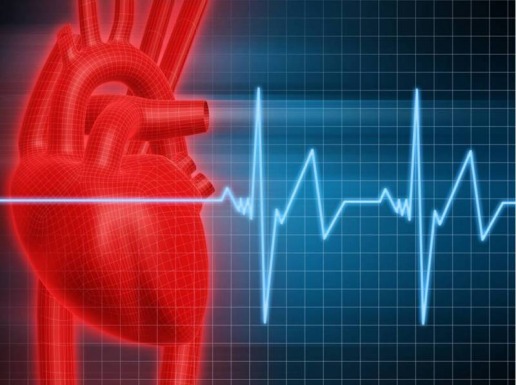Imagine doing something over 31 million times per year – and that is if you’re in good shape. Now, imagine having to do it over 42 million times and MORE – and that is if you’re in bad shape. The heart is a magnificent organ and ironically, the less we use it, the less efficient it is. That is not to say that 42 million beats per year in a sedentary person is better than the 31 million beats per year in the active person… on the contrary, the person with the lesser beats actually has the better heart.
The heart is a muscle and like all muscles, it needs to be worked. A heart that is not beating within a healthy, active body can be weak, small, or even enlarged due to hypertension. When the heart tissue is unhealthy, the arteries and blood vessels are clogged and constricted and the blood supply to the heart is blocked.
It cannot beat and function without having a continuous supply of oxygen. It then has to beat faster to pump enough blood through to function. A conditioned, healthy heart actually beats slower, as more blood is pumped through with each stroke. A normal resting heart rate is said to be between 70 and 80 beats per minute, but sadly, many people are struggling with heart rates that are much higher.
The heart is a muscle and like all muscles, it needs to be worked. A heart that is not beating within a healthy, active body can be weak, small, or even enlarged due to hypertension. When the heart tissue is unhealthy, the arteries and blood vessels are clogged and constricted and the blood supply to the heart is blocked.
It cannot beat and function without having a continuous supply of oxygen. It then has to beat faster to pump enough blood through to function. A conditioned, healthy heart actually beats slower, as more blood is pumped through with each stroke. A normal resting heart rate is said to be between 70 and 80 beats per minute, but sadly, many people are struggling with heart rates that are much higher.
Cardiovascular disease remains the top killer of society. Major risk factors include:
- high blood pressure
- high LDL (“bad”) cholesterol
- smoking
- lack of exercise
- obesity
- diabetes
- and stress.
Can vitamins help?
Vitamins and minerals are called supplements (i.e. in addition to a well balanced, healthy diet). Supplemental vitamins that help maintain a healthy heart - specifically vitamin C, B-complex, and vitamin E, along with the minerals calcium, chromium, zinc and selenium are all excellent supplements to a heart-healthy diet.
Although not literally called “vitamin Q”, another powerful supplement is Coenzyme Q10. Claimed as a miracle nutrient, it is not actually a vitamin in itself, but rather a vitamin-like substance naturally present in our tissues, but declines with age. Q10 energizes the coronary system and actually strengthens the heart muscle and improves tissue respiration. It is been extensively researched and has no known side effects or toxicity. It has been remarkably successful all over the world to enhance the immune system, treat heart disease, and high blood pressure. It is remarkable for its ability to help treat heart attack and stroke victims. It is also a powerful antioxidant capable of destroying the damage done by free radicals. Q10 is found in such foods as salmon, sardines and mackerel as well as in supplement form from the health store.
Of course, there is no sense in taking a handful of vitamins and minerals each day and continuing with a sedentary lifestyle packed with unhealthy, processed foods and other poor dietary choices. Nothing can replace the heart-healthy benefits of a proper diet and exercise along with supplementation of heart friendly vitamins and minerals like those mentioned including the miracle nutrient Coenzyme Q10. Take care of your heart – because if it stops, so do you!

 RSS Feed
RSS Feed

